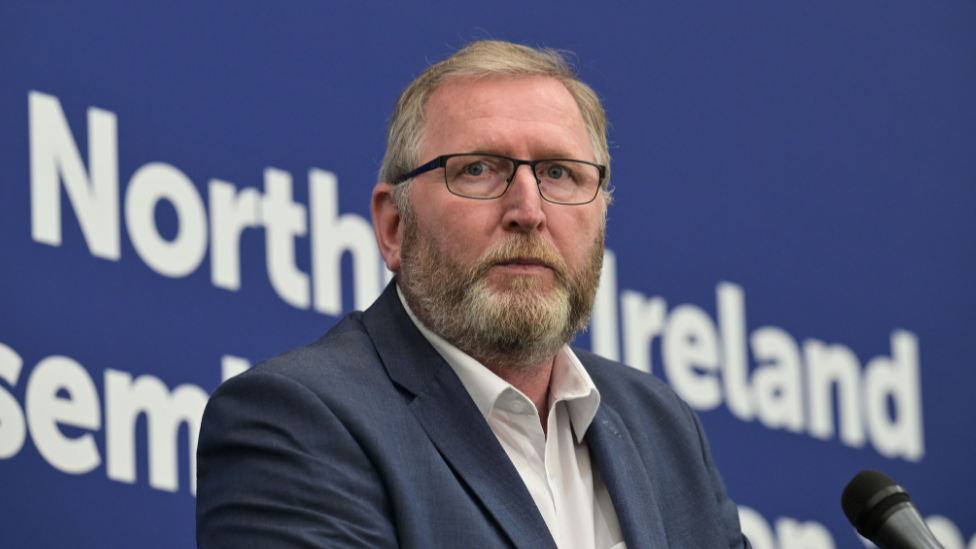Northern Ireland: Stormont stage set for return of devolution
- Published
- comments
Sinn Féin's Michelle O’Neill says next days will be 'crucial' in restoring power-sharing.
The stage is set for the restoration of devolved government in Northern Ireland after the Democratic Unionist Party (DUP) endorsed a deal to restore power sharing.
Sir Jeffrey Donaldson said the deal provided a basis for Stormont's return, subject to laws being passed.
Sinn Féin's Michelle O'Neill said it was a "day of optimism".
Details of the government deal with the DUP are due to be published on Wednesday.
The DUP has blocked a functioning executive and assembly since February 2022, in protest against post-Brexit trade arrangements.
Unionists said checks on goods entering Northern Ireland from the rest of the United Kingdom weakened Northern Ireland's place in the union.
Sinn Féin is the largest party in Northern Ireland after the last assembly election and will nominate Ms O'Neill for the position of first minister, with the DUP the second largest, entitling it to the role of deputy first minister.
This will be the first time the Northern Ireland Assembly will have a nationalist first minister.
What happens next?
Northern Ireland Secretary Chris Heaton-Harris said he will publish details of an agreement between the government and the DUP on Wednesday which will "secure Northern Ireland's place in the UK internal market".
Mr Heaton-Harris briefed parties on the content of the deal on Tuesday afternoon at Stormont Castle.
Legislation could be passed in parliament on Thursday, leading to a potential assembly recall on Friday or Saturday.
The first order of business would be to elect a new speaker - this must happen before any other business can be conducted.
The DUP has been involved in talks to change the arrangements agreed in the UK-EU Windsor Framework deal.
It has introduced additional checks on goods moving between Great Britain and Northern Ireland, which the DUP argued had undermined Northern Ireland's position in the UK internal market.
Sir Jeffrey said the new legislation would "remove checks on goods moving within the UK and remaining in Northern Ireland, and end Northern Ireland blindly following EU laws".
DUP deal: 'Green lane will go and goods will flow freely'
He added: "There will be legislation protecting the Acts of Union, which guarantees unfettered access for Northern Ireland business to the rest of the UK."
Regardless of who forms the next UK government, these measures will be taken as "legislative commitments", he said.
"Will we continue to fight for further change? Absolutely yes, we will," Sir Jeffrey told the BBC's Good Morning Ulster programme.
He said his party's deal was not perfect but represented a "good outcome" for Northern Ireland.
Speaking at a press conference on Tuesday afternoon Sir Jeffrey said that what the deal achieved was "significant, including when measured against the DUP's seven tests".
He said that on goods moving between Great Britain and Northern Ireland there "will no longer be physical checks or identity checks save where, as is normal anywhere in the UK, there are suspicions of smuggling of criminal activity".
"On customs paperwork again, customs declarations, supplementary declarations will be gone and we believe this represents a significant change."
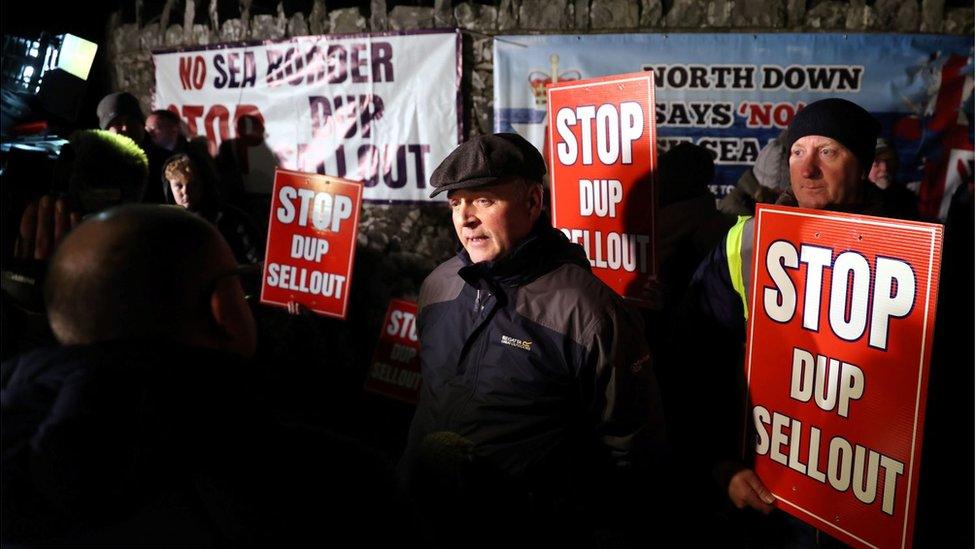
TUV members were among the protesters who gathered outside the DUP executive meeting on Monday night
Despite the remote venue for the DUP meeting on Monday being kept secret, senior party members were confronted by protesters holding placards calling them "sell-outs".
A DUP executive member behind a leak of the meeting was wearing a wire which relayed the party leader's speech to loyalist activist Jamie Bryson, BBC News NI understands.
Mr Bryson then posted an account of the meeting on social media.
"Obviously I wasn't in the room, the venue clearly wasn't bugged by some hidden device so there was clearly senior people - plural - within the DUP who felt so strongly about this that they took this extraordinary, unprecedented step," Mr Bryson explained.
Sir Jeffrey said whoever was responsible for leaking information from Monday's executive meeting was in "fundamental breach" of the party's rules.
Sir Jeffrey said, if he discovers who was responsible for the leak, they will face disciplinary action.
"We would absolutely deal with that in line with our internal disciplinary procedures," he told BBC Newsline.


Mission accomplished?
I think Sir Jeffrey Donaldson is pretty pleased with himself to get this over the line.
A lot of people doubted whether this was going to be possible.
I have to say, we were very much in that camp as that meeting stretched into five hours last night.
There was a sense outside the gathering that things were not going well for the party leader.
So, there was some surprise in the room when he did confirm that his party is on the path back to power sharing, on the condition, of course, that the legislation falls into place before then.
Sir Jeffrey looked pretty relieved because I'm sure that meeting was bruising.
There are still divisions within the party but I think he felt very much as if it was mission accomplished.
But the challenge for Sir Jeffrey now will be to manage the fallout.

Speaking in Stormont's Great Hall on Tuesday, Sinn Féin President Mary Lou McDonald said she was pleased Northern Ireland was on the "cusp of the restoration of government".
She added that Ms O'Neill's installation as Northern Ireland's first nationalist first minister will be a "moment of great significance".
She said that it is a "mark of extent of change in the north and right across Ireland", but acknowledged that the "sequencing" of a return to power sharing still has to be agreed.
'Bittersweet'
Alliance Party leader Naomi Long said the DUP's deal brought "bittersweet emotions" because of the time Stormont has been absent.
Ulster Unionist Party leader Doug Beattie said the deal appeared to only meet three of the DUP's seven tests.
Social Democratic and Labour Party (SDLP) asembly member Matthew O'Toole described the events of Monday night as "surreal" but hoped it marked progress towards devolution.
Traditional Unionist Voice leader Jim Allister said there was a need to "separate fact from fiction" and accused the DUP of a "tawdry climbdown" in its deal with the government.
'Preserve peace'
A US State Department spokesperson said they welcomed the news "that important steps have been taken toward the full restoration of the Northern Ireland Assembly and Executive at Stormont".
Prime Minister Rishi Sunak and the taoiseach (Irish prime minister) Leo Varadkar both welcomed developments.
Both leaders said they hoped this now paves the way for the restoration of the Northern Ireland Executive and the Assembly, and that north-south ministerial meetings will resume again.
Simon Coveney, Ireland's minister for enterprise, trade, and employment, said the Irish government has not seen a draft of a deal agreed between the DUP and the UK government.
However, he said his government has "been given reassurance that any new arrangements that are being put in place won't do anything to undermine the Windsor Framework or the trade agreements that have been put in place to facilitate trade between Ireland and UK and the EU and the UK".
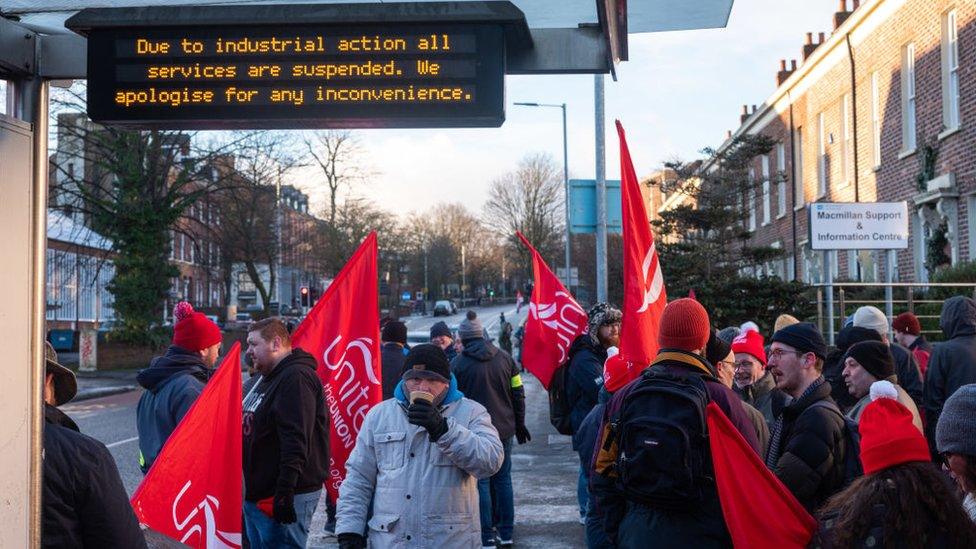
Public transport staff are planning to strike on Thursday
Sir Jeffrey said he gave his word to trade unions that pay awards to public sector workers would be prioritised when the institutions were restored.
The Northern Ireland secretary had previously guaranteed funding of more than £3.3bn for a restored executive, including a £500m provision for public sector pay.
Two years with no devolved government has caused increasing budgetary pressures. Budgets have been set in Westminster and no big policy or spending decisions could be made in Northern Ireland without ministers.
Nurses, teachers, transport workers and civil servants were among more than 100,000 public sector works who staged a mass walk-out over pay a fortnight ago.
- Published29 January 2024
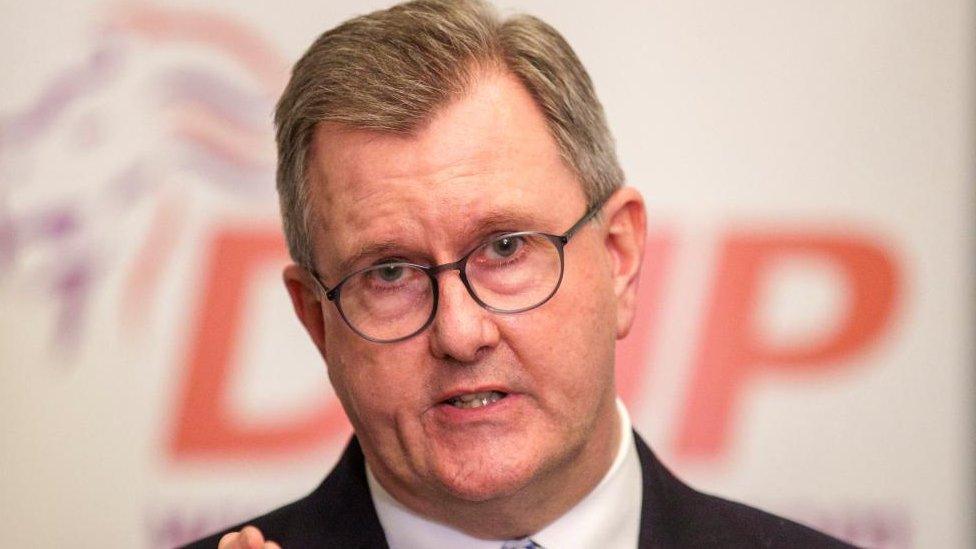
- Published30 January 2024
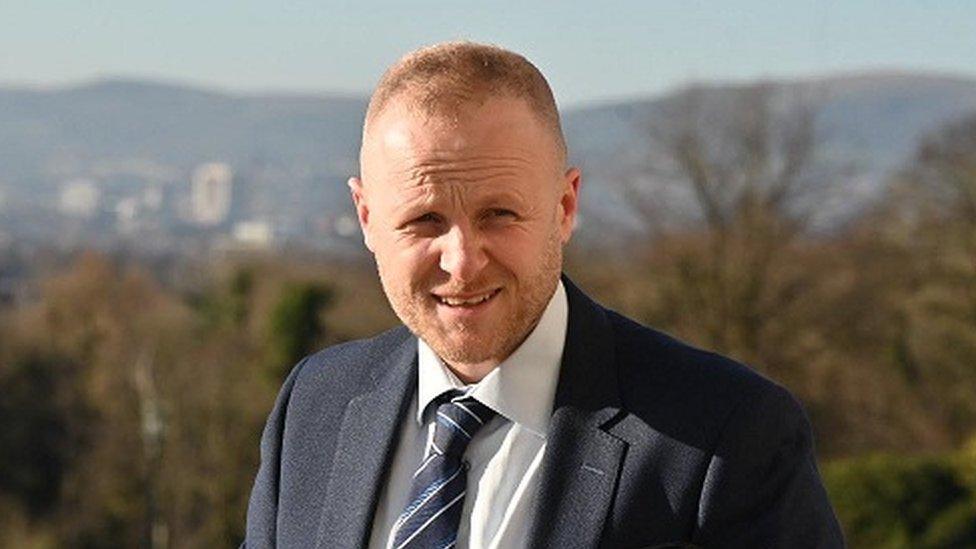
- Published30 January 2024
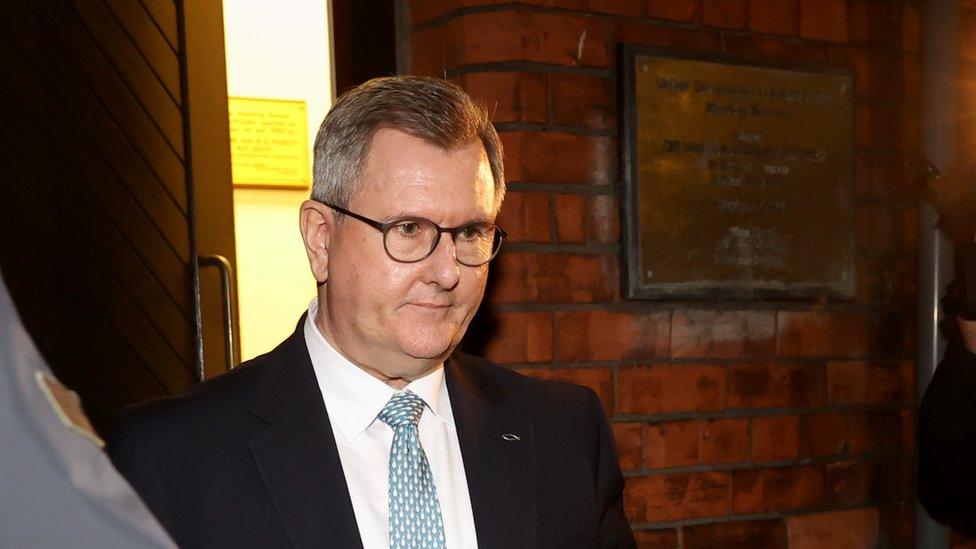
- Published29 January 2024
- Published27 January 2024
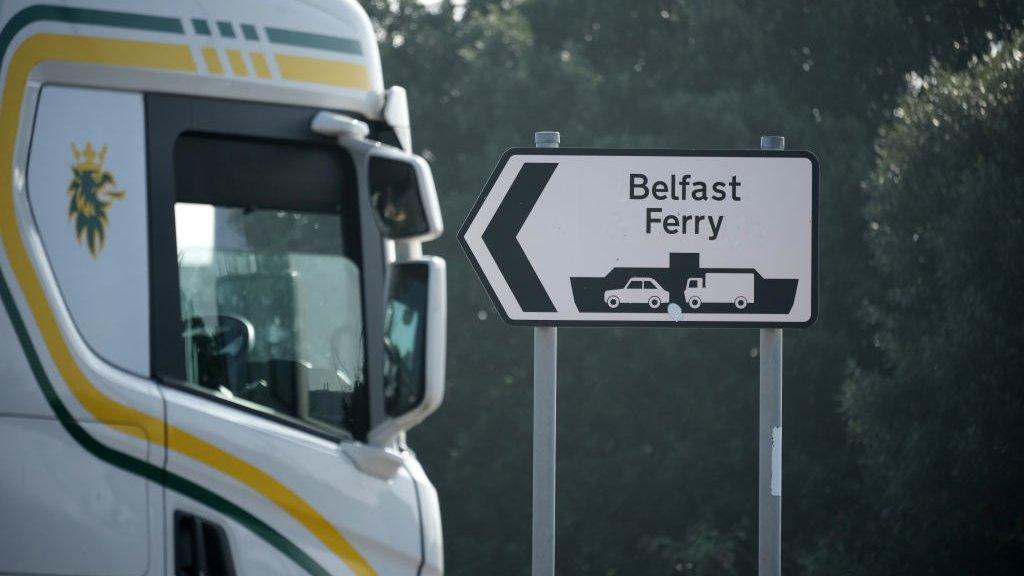
- Published27 January 2024
